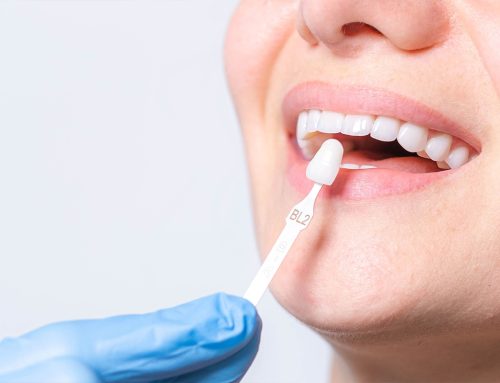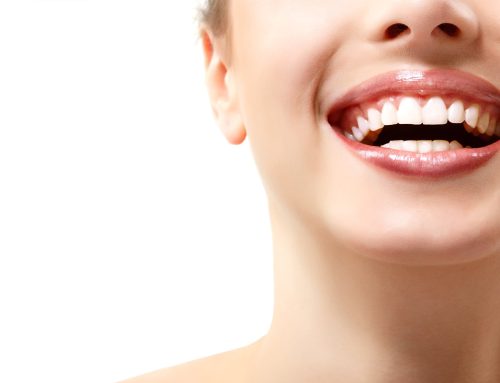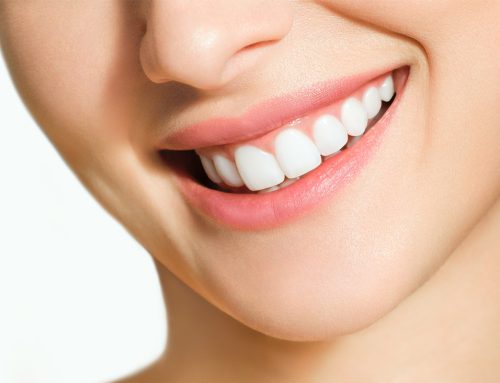
What is Teeth Whitening?
- What is Teeth Whitening?
- Teeth whitening is a popular cosmetic dental procedure aimed at lightening the shade of teeth by removing stains and discoloration. This treatment can greatly enhance the appearance of a person’s smile, making the teeth look cleaner and brighter.
- What Techniques Are Used in Teeth Whitening?
- There are several methods:
- In-office bleaching: This procedure is done in the dental office and offers the fastest results. A protective gel or rubber shield protects the gums, and then a bleaching agent is applied to the teeth.
- At-home bleaching: Dentists can provide a custom-made tray for at-home whitening. The patient places the whitening gel in the tray and wears it for certain periods.
- Whitening toothpastes: These toothpastes contain abrasives that help remove surface stains. Some also contain mild bleaching agents.
- Over-the-counter whitening products: These can be bought without a prescription. They include strips, gels, and trays.
- There are several methods:
- Who is Recommended for Teeth Whitening?
- Those with healthy, unrestored teeth and gums who wish to enhance the brightness of their smile are ideal candidates. People with yellow tones to their teeth generally respond best.
- When is Teeth Whitening Not Recommended?
- It’s not recommended for:
- Patients with sensitive teeth and gums.
- People with allergies to peroxide (the whitening agent).
- Individuals with gum disease, worn enamel, cavities, or exposed roots.
- Pregnant or lactating women.
- Children under 16 years of age.
- Individuals with dental restorations like crowns or fillings, as these won’t whiten.
- It’s not recommended for:
- The Procedure Process
- For in-office bleaching:
- A protective gel or rubber shield is applied to protect the gums.
- The bleaching agent, usually hydrogen peroxide, is applied to the teeth.
- Some treatments involve the use of a laser or light to activate the peroxide.
- The procedure takes about 30 minutes to an hour, and one to three visits are typically required.
- For in-office bleaching:
- Things to Know
- The results aren’t permanent. Stains might reappear, especially if you consume a lot of items that can stain teeth, like coffee, tea, and wine.
- Some people may experience tooth sensitivity or gum irritation after the procedure, which typically subsides within a few days.
- It’s crucial to follow the dentist’s post-whitening care instructions to ensure the longevity of the results.
- Post-Operative Process
- Avoid foods and drinks that stain for at least 24 hours.
- Brush and floss as directed by your dentist.
- Avoid tobacco products.
- Attend any follow-up appointments as suggested by your dentist.
- Consider using a whitening toothpaste to help maintain results.
- Inform your dentist immediately if you experience severe discomfort or any other unusual symptoms.
FAQs
- Is teeth whitening safe?
- Yes, when performed by a qualified dental professional or following a dentist’s instructions for at-home kits, teeth whitening is safe. However, some people may experience gum irritation or tooth sensitivity.
- How long does the whitening effect last?
- Whitening results can last from a few months up to several years, depending largely on individual habits. Consuming staining agents like coffee, wine, and tobacco can reduce the duration of the effect.
- Will teeth whitening affect my fillings, veneers, or crowns?
- No, teeth whitening doesn’t change the color of dental restorations. It primarily affects natural teeth, which might result in uneven color if restorations are present.
- How can I maintain the results of teeth whitening?
- Avoid foods and drinks that stain, brush and floss regularly, consider using a whitening toothpaste, and have regular dental check-ups. Some individuals also go for maintenance sessions.
- Does teeth whitening cause permanent tooth sensitivity?
- While some people may experience temporary sensitivity after whitening, it generally subsides within a few days. If sensitivity persists, it’s important to see a dentist.
- How often can I whiten my teeth?
- The frequency depends on the method of whitening and the individual’s dental health and habits. For in-office procedures, it’s typically suggested once a year or as recommended by the dentist.
- Are over-the-counter teeth whitening products as effective as professional treatments?
- Over-the-counter products can be effective but usually contain a lower concentration of the active bleaching agent than professional products. As a result, they might take longer to achieve the desired results.
- Can I whiten my teeth if I have braces?
- It’s recommended to wait until braces are removed before undergoing a full teeth whitening procedure. This ensures even whitening of all tooth surfaces.
- Is there an age restriction for teeth whitening?
- While there’s no specific age limit, teeth whitening is typically not recommended for children under 16 as their pulp (nerve of the tooth) is enlarged until this age, which could increase sensitivity.
- Can I undergo teeth whitening if I’m pregnant or breastfeeding?
- It’s generally advised to postpone teeth whitening procedures until after pregnancy and breastfeeding, mainly due to the lack of research on the effects of the whitening agents on the fetus and newborns.



